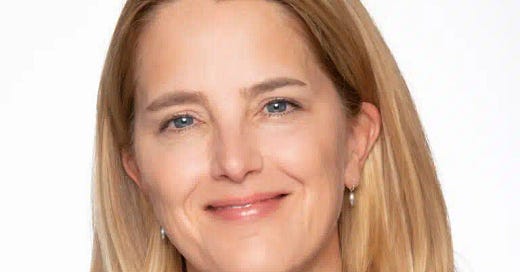How to help people change, with Dr. Carrie Wilkens | Flourishing After Addiction #35
"Understanding how your loved one’s behavior makes sense to them opens the door to positive change."
You can also listen to this episode on your favorite podcast player, or wherever you get your podcasts.
One of the most common questions I get is how friends, family members, and loved ones can support people struggling with addiction. A few years ago, I could have recognized that there was a need for guidance here, of course. But since I wrote my book and began doing more public-facing work, I’ve been overwhelmed by just how hungry people are for good information on this topic. For this episode of the Flourishing After Addiction podcast, I’m very happy to bring you a world expert on how science and kindness can help people to change.
Carrie Wilkens is a psychologist with over 25 years of experience in the practice and dissemination of evidence-based treatments for substance use and post-traumatic stress. She and her team at the Center for Motivation and Change have developed the Invitation to Change approach for families and loved ones of people struggling with substance use, as well as the professionals who support them. This is a change model that has been used in group, family, and individual work, including by counselors, first responders, and a wide range of other folks who are looking to help people change.
Please note, this isn’t an episode about how to change people. It’s about how to help people to change—hence, an “Invitation to Change.” We discuss some key lessons from the models as well as practical next steps about how people can get directly involved in the Invitation to Change approach, from formal trainings to drop-in groups.
In our conversation, we break down some of the key elements of the change model she uses. There’s a lot here, so for the Substack version of these show notes, let me share a graphic that will help to understand the components:
The three main parts of the model are Understanding, Awareness, and Action, with ongoing Practice at the center. Some main components are based on Community Reinforcement and Family Training (CRAFT), an evidence-based program that was developed years ago for families of people who struggle with addiction. But, as we discuss in the episode, they added some crucial elements to Invitation to Change, especially:
Values work, largely inspired by Acceptance and Commitment Therapy,
and Self-Compassion, drawing in part on Kristin Neff’s work.
We discuss strategies and perspectives from those crucial dimensions at length. For example, we discuss the crucial distinction between true self-compassion and watered-down, commodified versions of “self-care” that don’t work. Also, grounding yourself in the question, “what kind of person do I want to be?” can help to orient and ground your efforts, from tough communications to getting clear on your own behaviors and when to allow naturally occurring consequences to take place.
A key mantra of this work is “behaviors make sense.” People don’t use engage in addictive behaviors because they’re hijacked and zombified, it’s because the behavior is serving a purpose. Bringing this perspective to substance use problems is a powerful way to stop the struggle and find effective, collaborative ways to help people change.
There’s much more than that in the audio: Dr. Wilkens’s personal and professional development (going back to Western Kansas!), stigma, ambivalence, codependency, what Al-Anon gets right, motivational interviewing and dropping the agenda as a remedy for burnout, making sense of smartphone overuse in relationships, ADHD, and much more. Enjoy, and let me know what you think.
Carrie Wilkens, Ph.D., is the Co-Founder and Clinical Director of the Center for Motivation and Change, as well as the Co-President and CEO of the CMC:Foundation for Change, not-for-profit organization with the mission of improving the dissemination of evidence-based ideas and strategies to professionals and loved ones of persons struggling with substance use. She is co-author of the award-winning book Beyond Addiction: How Science and Kindness Help People Change, a practical guide for families dealing with addiction and substance problems in a loved one based on principles of Community Reinforcement and Family Training (CRAFT), and co-author of The Beyond Addiction Workbook for Family and Friends: Evidence-Based Skills to Help a Loved-One Make Positive Change—I recommend both of these books frequently! Dr. Wilkens has been a Project Director on a large federally-funded Substance Abuse and Mental Health Services Administration (SAMHSA) grant, and she is regularly sought out by the media to discuss issues related to substance use problems, with appearances on the CBS Morning Show, Katie Couric Show, frequent NPR segments, and Ten Percent Happier with Dan Harris.
If you’re finding this newsletter useful, please consider sharing this episode with someone else you think would benefit.
In this episode
- Community Reinforcement and Family Training (CRAFT)
- SMART Recovery Family & Friends
- Al-Anon, Codependents Anonymous
- Kristen Neff and self-compassion
- for ACT, check out my prior episode with Jason Luoma on shame and self-stigma




